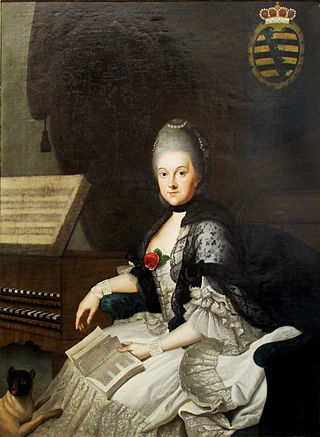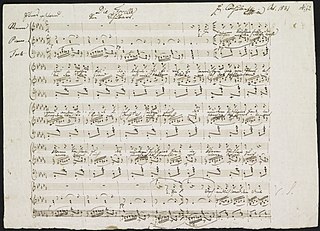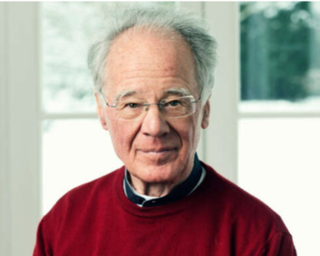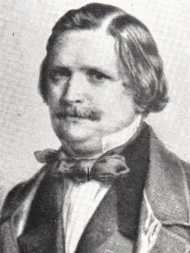
Siegfried Helferich Richard Wagner was a German composer and conductor, the son of Richard Wagner. He was an opera composer and the artistic director of the Bayreuth Festival from 1908 to 1930.

Anna Amalia of Brunswick-Wolfenbüttel, was a German princess and composer. She became the duchess of Saxe-Weimar-Eisenach by marriage, and was also regent of the states of Saxe-Weimar and Saxe-Eisenach from 1758 to 1775. She transformed her court and its surrounding into the most influential cultural center of Germany. Her invitation of Abel Seyler's theatre company in 1771 marked the start of Weimar Classicism, that would include such figures such as Wieland, Goethe, Herder and Schiller working under her protection.

Conradin Kreutzer or Kreuzer was a German composer and conductor. His works include the operas Das Nachtlager in Granada and incidental music to Der Verschwender, both produced in 1834 in Vienna.

"Die Forelle", Op. 32, D 550. is a lied, or song, composed in early 1817 for solo voice and piano with music by the Austrian composer Franz Schubert (1797–1828). Schubert chose to set the text of a poem by Christian Friedrich Daniel Schubart, first published in the Schwäbischer Musenalmanach in 1783. The full poem tells the story of a trout being caught by a fisherman, but in its final stanza reveals its purpose as a moral piece warning young women to guard against young men. When Schubert set the poem to music, he removed the last verse, which contained the moral, changing the song's focus and enabling it to be sung by male or female singers. Schubert produced six subsequent copies of the work, all with minor variations.

George Alexander Albrecht was a German conductor and composer, who also worked as a musicologist and academic teacher. A prolific composer at a young age, he was Generalmusikdirektor (GMD) of the Staatsoper Hannover from 1965 for 30 years, where he led not only the major operas by Mozart and stageworks by Wagner, but contemporary composers, such as Aribert Reimann's Troades in 1987. He was GMD of the Nationaltheater Weimar from 1996, and taught at the Hochschule für Musik Franz Liszt, Weimar. Albrecht promoted the works of neglected composers such as Wilhelm Furtwängler, Hans Pfitzner, and Erwin Schulhoff.

The family of the composer Richard Wagner:

Alfred Reisenauer was a German pianist, composer, and music educator.
"Music of the Future" is the title of an essay by Richard Wagner, first published in French translation in 1860 as "La musique de l'avenir" and published in the original German in 1861. It was intended to introduce the librettos of Wagner's operas to a French audience at the time when he was hoping to launch in Paris a production of Tannhäuser, and sets out a number of his desiderata for true opera, including the need for 'endless melody'. Wagner deliberately put the title in quotation marks to distance himself from the term; Zukunftsmusik had already been adopted, both by Wagner's enemies, in the 1850s, often as a deliberate misunderstanding of the ideas set out in Wagner's 1849 essay, The Artwork of the Future, and by his supporters, notably Franz Liszt. Wagner's essay seeks to explain why the term is inadequate, or inappropriate, for his approach.

Franz Joseph von Schlik of Bassano and Weisskirchen was a count and general in the Austrian Empire. He was one of the most successful Austrian generals during the Hungarian Revolution of 1848.

Martha von Sabinin was a Russian composer and pianist.
Maria Anna von Stubenberg, aka Maria Annavon Buttlar-Stubenberg was an Austrian Empire-born composer who used Hungarian and Romani folk tunes in her compositions.

Alexander Winterberger was a German organist and composer. He is mostly remembered for his association with Franz Liszt, in particular his close involvement with the two great organ fantasies Liszt wrote for the Merseburg Cathedral organ, the Fantasy and Fugue on the chorale "Ad nos ad salutarem undam" and the Fantasy and Fugue on the Theme B-A-C-H.

Jan Bedřich Kittl was a Czech composer.
Princess Julie Furstin von Waldburg-Wurzach was an Austrian composer who published over 60 works for voice and/or piano. She was born in Vienna to Count Frans and Frantiska Dubsky von Trebomyslicz. In 1858, she married Prince Eberhard Waldburg-Wurzach, becoming his second wife. They had two daughters, Marie and Elizabeth Sophie.

"Erlkönig", Op. 1, D 328, is a Lied composed by Franz Schubert in 1815, which sets Johann Wolfgang von Goethe's poem of the same name. The singer takes the role of four characters — the narrator, a father, his small son, and the titular "Erlking", a supernatural creature who pursues the boy — each of whom exhibit different tessitura, harmonic and rhythmic characteristics. A technically challenging piece for both performers and accompanists, "Erlkönig" has been popular and acclaimed since its premiere in 1821, and has been described as one of the "commanding compositions of the century".
Helen Dellenbaugh Tretbar was an American author, librettist, and translator who edited The Etude magazine in the late 1880s and was fluent in French, German, and Italian.
Else Streit was a German composer, pianist, teacher, and violinist.
Anna Laura Mahir Sick was a German composer and pianist who served as the court pianist and Mistress of Piano to the court in Stuttgart.
Anna Marie Wilhelmine Antonie Leopoldine Benfey Schuppe was an Austrian author and composer who wrote songs, operas, and music for theatre. She published under the names Anna Benfey Schuppe and Anna Benfey.
Amalie Karoline Luise Scholl Gatspar was a German composer who wrote songs and works for piano. She published under the name Amalie Scholl.












